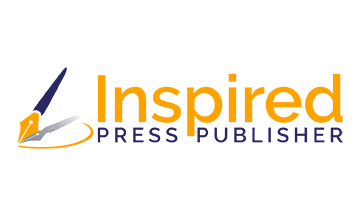
Whether it is your first time or you already have books written, it is a significant accomplishment to a write a nonfiction book. Many people have great ideas for writing a book but have no idea where to start or how to finish it. To write your nonfiction book, you will need to know the techniques used by other successful authors so you do not feel intimidated or discouraged to finish. To help you succeed, here are 8 ways to prepare and begin writing your nonfiction book.
-
Create a Space Conducive to Writing
Find a place in your home where it allows you to feel the most comfortable as you create your work. Whether this is your writing desk, office, or sitting on the couch, make sure that you find a place that is clear of clutter and allows you to think freely. You can also choose other options such as the local library or a coffee shop if there is not much private space at your house.
As you write, you want to eliminate as many distractions as possible. If you have children playing in the next room, music playing at a high volume, or if you are surrounded by too much chatter, these are all serious distractions that you need to eliminate. Noise canceling headphones are a great way to block out any noise and maintain your focus while writing.
Another major hindrance for writing is social media and email. While in your writing space, make sure you are not logged in to any email programs or social media sites or apps because it is only a matter of time before you quickly find yourself not writing and instead, checking your inbox or looking at selfies on someone’s wall.
-
Choose a Topic
This may seem like a no-brainer, but if you are serious about starting a nonfiction book and writing it until it is completed, you need to know what you’re going to write about before you start.
Here are three easy steps to help you with this process:
- Decide on what you want this book to accomplish – You may want to ask yourself, “What do I want this book to accomplish for me?” Many people have different answers to this question whether it is to create a legacy, raise visibility, increase our offer credibility, reach new business opportunities, or obtain speaking engagements. Depending on your objective, answering this question will help you narrow down your topic.
- Determine your target audience – Since you already know your objective, you can now start identifying the audience you want to reach in order to meet that objective. The audience is always determined by the goals you select for your book.
- Figure out what the audience cares about – The book subject will be something that the reader was to know something about. Figure out what is valuable to the audience you are trying to reach and think about what you know will be exciting and appealing to your readers.
- Do Research
Somewhere along the line, you will probably need some form of research to get information when writing a nonfiction book. Many writers fail to recognize this critical step and get stuck (and sometimes even stop writing) because a bit of research is required for the topic that is being written. Several hours or even days can be wasted because you have stopped writing and are now spending valuable time searching for a book that contains the information you need or clicking through the Internet to find a reliable source.
Doing your research beforehand sets you apart from beginner writers who do not take the time to do the necessary research before starting writing and end up delaying the time to completion. Once you’re in your writing zone, make sure that you have all the essential information and research you need whether they are books you can keep within easy reach near your desk or a list of bookmark links to online sources.
-
Prepare Yourself Mentally and Physically
Most authors have a tough time writing if they are constantly worrying about stressful situations or continuously arguing with someone. You want to make sure that you clear your mind of any negative or stressful thoughts that can have a bad effect on your writing flow.
You also want to make sure that you get enough sleep, so you have more energy to get the best results. Also, make sure to drink plenty of water and eat healthy meals while writing so you can perform your best from the first draft until your book is completed. Following a self-care strategy will ensure that you maintain your highest performance while writing.
-
Determine Time Needed and Create a Writing Schedule
The time required to complete your book depends on the type of nonfiction you are writing about. If it is a research-based book, it will take a much longer time to write since you will have to do research, evaluate, study, and form opinions of your studies. You may also have to do interviews which with individuals, read over those interviews, and then to put your notes or recordings into your writing.
If you are writing from your own experience, you can expect the time to completion to be much shorter since you only need to sit down and write about your own expertise or experiences.
You should also break down the number of words you feel comfortable writing per hour and also set a goal for the number of words you can write per day. Once you have these numbers in mind, you should know that most nonfiction books can cover most topics in 50,000 words or less. If you are writing an e-book, the word count can range from 5000 to 20,000 words. If your subject requires more words, for example, 250,000 words, you can expect that this will take a longer time when making your writing schedule.
With all of this information in mind, you can now set a target date for your book completion. Remember to create a writing schedule that has an attainable goal and feels doable, so you have a better chance of completing your nonfiction book by your set target date.
-
Focus on Your Outline
Consider the outline for your book as the roadmap for your story. Just like a map or GPS can give you directions while you are driving, your outline will tell you where you need to go while you are writing. Since you already know how much time you need and have a writing schedule in mind, an outline will help you finish your book in less time.
There are several different ways to create an outline for a nonfiction book:
Simple Book Outline – Make a simple title which you can always change later then list all of the key points you will cover in your book’s message and overall theme. You will use these key points to begin generating notes, and these notes will start you on drafting your book chapters.
Chapter-by-Chapter Outline – This is an extended version of the simple book outline where you will first have to create complete chapter lists with each chapter listed as a heading. These headings can be shifted around or later added to with additional material as the book draft continues to develop as you write. This outline also requires you to create a working title for each chapter that is listed in logical order as well as filling in all key points of each chapter (website links, books, interviews).
Mindmap – This method of outlining encourages free-form thinking where you can get all of your ideas relating to your book out on paper. To mind map, you write your topic in the middle of a piece of paper. Next, use lines and related words and themes for your book so that you can draw as many connections as possible to form an outline for your book.
Book Outline Software – There is nothing wrong with using technology to help you write your next nonfiction book because these programs keep you extremely organized. These programs allow you to upload your research, organize it in folders, move it around, help you focus on your timeline, and also offer many other features. If you want to publish your book quickly, using book outline software can be beneficial.
-
Prepare to Backup Work
When writing, you want to avoid losing your work to accidents like computer crashes or forgetting to save your work. Make sure to write your nonfiction book on a software platform that has an autosave feature even if you are disconnected from the Internet. You should also save a backup of your draft on your computer’s hard drive and keep another copy on a USB flash drive. You should also save a copy online using a free cloud sharing service like Google Drive or Dropbox.
-
Create Milestones Before Starting
Create rewards for yourself even before you begin writing your book. Maybe at the 10,000-word mark you will take a break and go see a movie or at the 25,000-word mark, you will order your favorite pizza. These milestones are great for rewarding yourself to stay positively motivated until the book is finished.
